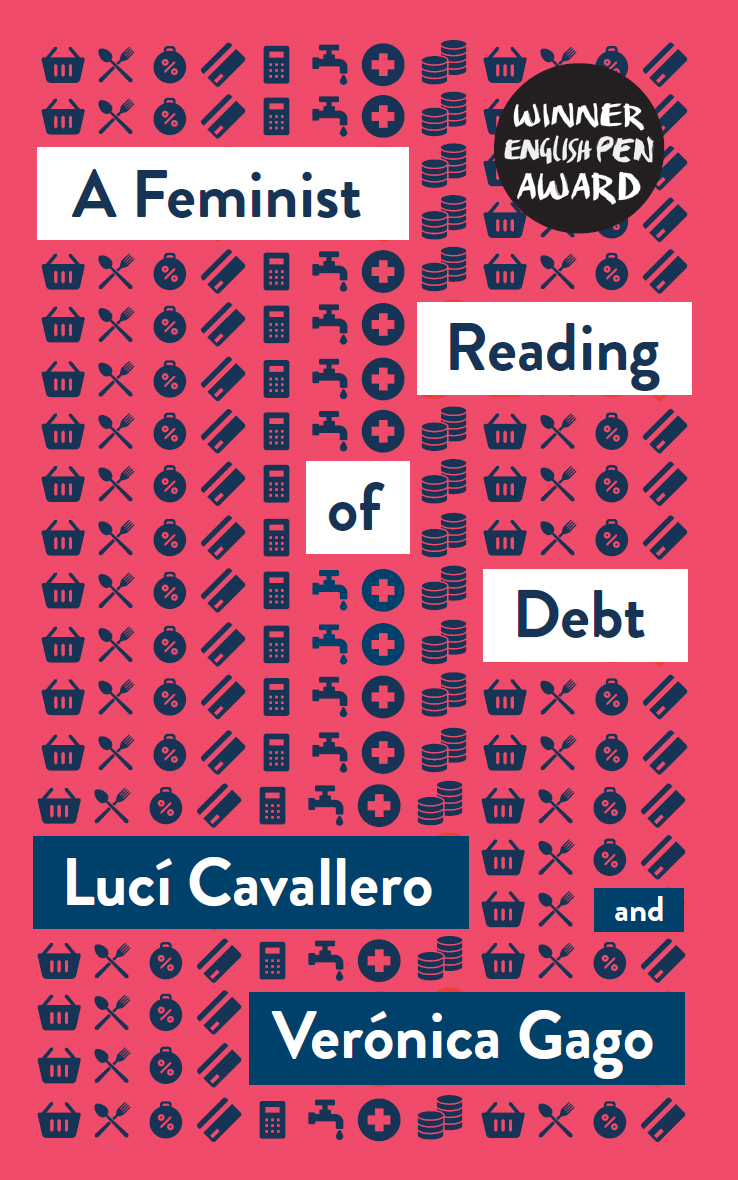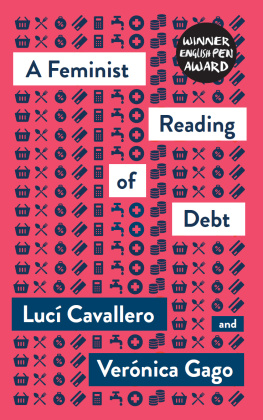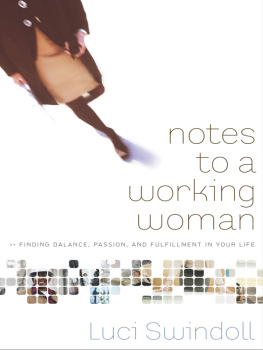Lucí Cavallero - A Feminist Reading of Debt
Here you can read online Lucí Cavallero - A Feminist Reading of Debt full text of the book (entire story) in english for free. Download pdf and epub, get meaning, cover and reviews about this ebook. year: 2021, publisher: Pluto Press, genre: Politics. Description of the work, (preface) as well as reviews are available. Best literature library LitArk.com created for fans of good reading and offers a wide selection of genres:
Romance novel
Science fiction
Adventure
Detective
Science
History
Home and family
Prose
Art
Politics
Computer
Non-fiction
Religion
Business
Children
Humor
Choose a favorite category and find really read worthwhile books. Enjoy immersion in the world of imagination, feel the emotions of the characters or learn something new for yourself, make an fascinating discovery.
- Book:A Feminist Reading of Debt
- Author:
- Publisher:Pluto Press
- Genre:
- Year:2021
- Rating:3 / 5
- Favourites:Add to favourites
- Your mark:
- 60
- 1
- 2
- 3
- 4
- 5
A Feminist Reading of Debt: summary, description and annotation
We offer to read an annotation, description, summary or preface (depends on what the author of the book "A Feminist Reading of Debt" wrote himself). If you haven't found the necessary information about the book — write in the comments, we will try to find it.
A Feminist Reading of Debt — read online for free the complete book (whole text) full work
Below is the text of the book, divided by pages. System saving the place of the last page read, allows you to conveniently read the book "A Feminist Reading of Debt" online for free, without having to search again every time where you left off. Put a bookmark, and you can go to the page where you finished reading at any time.
Font size:
Interval:
Bookmark:

A Feminist Reading of Debt
Mapping Social Reproduction Theory
Series editors Tithi Bhattacharya, Professor of South Asian History and the Director of Global Studies at Purdue University; and Susan Ferguson, Associate Professor, Faculty of Liberal Arts, Wilfrid Laurier University
Capitalism is a system of exploitation and oppression. This series uses the insights of social reproduction theory to deepen our understanding of the intimacy of that relationship, and the contradictions within it, past and present. The books include empirical investigations of the ways in which social oppressions of race, sexuality, ability, gender and more inhabit, shape and are shaped by the processes of creating labour power for capital. The books engage a critical exploration of social reproduction, enjoining debates about the theoretical and political tools required to challenge capitalism today.
Also available
Social Reproduction Theory:
Remapping Class, Recentering Oppression
Edited by Tithi Bhattacharya
Women and Work:
Feminism, Labour, and Social Reproduction
Susan Ferguson
Disasters and Social Reproduction:
Crisis Response between the State and Community
Peer Illner
Social Reproduction Theory and the Socialist Horizon:
Work, Power and Political Strategy
Aaron Jaffe
Luc Cavallero and Vernica Gago
Translated by Liz Mason-Deese
Foreword by Tithi Bhattacharya

First published 2021 by Pluto Press
345 Archway Road, London N6 5AA
www.plutobooks.com
Copyright Luc Cavallero and Vernica Gago 2021
English translation Liz Mason-Deese 2021
This book has been selected to receive financial assistance from English PENs PEN Translates! programme, supported by Arts Council England. English PEN exists to promote literature and our understanding of it, to uphold writers freedoms around the world, to campaign against the persecution and imprisonment of writers for stating their views, and to promote the friendly cooperation of writers and the free exchange of ideas. www.englishpen.org

The right of Luc Cavallero and Vernica Gago to be identified as the authors of this work has been asserted in accordance with the Copyright, Designs and Patents Act 1988.
Work published within the framework of Sur Translation Support Program of the Ministry of Foreign Affairs and Worship of the Argentine Republic. Obra editada en el marco del Programa Sur de Apoyo a las Traducciones del Ministerio de Relaciones Exteriores y Culto de la Repblica Argentina.
British Library Cataloguing in Publication Data
A catalogue record for this book is available from the British Library
ISBN 978 0 7453 4171 2 Hardback
ISBN 978 0 7453 4172 9 Paperback
ISBN 978 1 7868 0846 2 PDF
ISBN 978 1 7868 0848 6 Kindle eBook
ISBN 978 1 7868 0847 9 EPUB eBook
This book is printed on paper suitable for recycling and made from fully managed and sustained forest sources. Logging, pulping and manufacturing processes are expected to conform to the environmental standards of the country of origin.
Typeset by Stanford DTP Services, Northampton, England
Simultaneously printed in the United Kingdom and United States of America
Tithi Bhattacharya
I grew up in the foothills of the Himalayas, in a region called the Terai, where wild mountain rivers and low clouds watered in equal measure dense, Sal forests. As a child I remember the smell of the thick Sal leaves, my feet remember their soft crunch on forest floors, the slanted late afternoon light playing tricks on you and revealing flitting animals behind thick trees. But the politician who came to our small town one summer told us that our forests were valuable, the trees could, when cut down and sold, repay Indias IMF loan. Our wild forestsour Sal trees, our cheetahs, elephants, and monkeyswere suddenly yoked to a register of alien comprehension. The forest was no longer a concrete provider for local communities and a habitat for multiple living beings, it was suddenly connected to a world market through abstract relations of indebtedness, power and violence.
I am grateful to Luc Cavallero and Vernica Gago for making sense of that moment that so many of us in the global south in the first wave of the SAP (Structural Adjustment Programs) found so incomprehensible.
This book is thus primarily about making sense. Under capitalism, abstract mechanisms of the market have concrete consequences in the lives of the dispossessed. But those mechanisms, whether they are the intangible extraction of surplus labor on the shopfloor or the opaque financial operations of a subprime mortgage, remain obscured from the vision of those whom they affect and harm. Cavallero and Gago follow in the best traditions of left scholarship in making legible those operations precisely so that they can be resisted.
Under their clear analytic stewardship, we begin to understand the real purpose of capitalist debt, not simply as an operation that creates profit on the backs of the indebted but that produces obedience through financial terror. The book traces how debt organizes our lifeworld whereby we are forced to go into debt to have a home, to pay for healthcare or get an education. Simply put, debt tethers our lifemaking needs to the logic of accumulation. A 2018 reporton Foreign Debt and Human Rights notes how decades of debt-induced austerity cuts to social services mean that women in poor households now spend significantly more of their time performing unpaid care work than women in non-poor households. Precisely, then, because it is social reproduction processes that are most disfigured by debt, we need a feminist reading of debt.
Cavallero and Gago do not simply make the superficial observation that women, due to their relationship to social reproduction tasks, are most harmed by debt operations. Instead, A Feminist Reading of Debt offers a feminist diagnostic of capitalist finance itself. The first theoretical movement for such an investigation is visibilizing debt and its violence. As the authors show, taking debt out of the closet means showing the differential way in which debt operates for women, for lesbians, and for trans people. Such an inquiry demands that we be attentive to the differential of exploitation that is created among the indebted, those of us who spend all day managing accounts are women, housewives, female heads of households, formal workers, popular economy workers, sex workers, migrants, inhabitants of the villas or favelas, Black and Indigenous women, travestis, campesinas, or students. Most importantly, such a methodology of visibilizing debt and showing its sexual and gender difference are ways of removing its power of abstraction.
Throughout the text, the authors perform many such acts of disclosure. In one of the most powerful sections of the book an activist with the unemployed workers organization, Federacin de Organizaciones de Base, relates how loan companies situate themselves strategically at the nodal points of everyday lifemaking, In the neighborhood the school exit the clinic where you take your children to the doctor or to the market where people are constantly circulating. For the loan companies all that is required for eligibility is proof of state assistance for welfare. If someone qualifies for state benefits, they qualify for a loan. In other words, the public benefits of the capitalist state are used as a pivot for indebtedness to private companies. In what the authors call financial terrorism, this financialization of everyday life forces the poorest sectors (and now not only those sectors) to go into debt to pay for food and medication and to finance the payment of basic services in installments with incredibly high interest rates.
Font size:
Interval:
Bookmark:
Similar books «A Feminist Reading of Debt»
Look at similar books to A Feminist Reading of Debt. We have selected literature similar in name and meaning in the hope of providing readers with more options to find new, interesting, not yet read works.
Discussion, reviews of the book A Feminist Reading of Debt and just readers' own opinions. Leave your comments, write what you think about the work, its meaning or the main characters. Specify what exactly you liked and what you didn't like, and why you think so.










